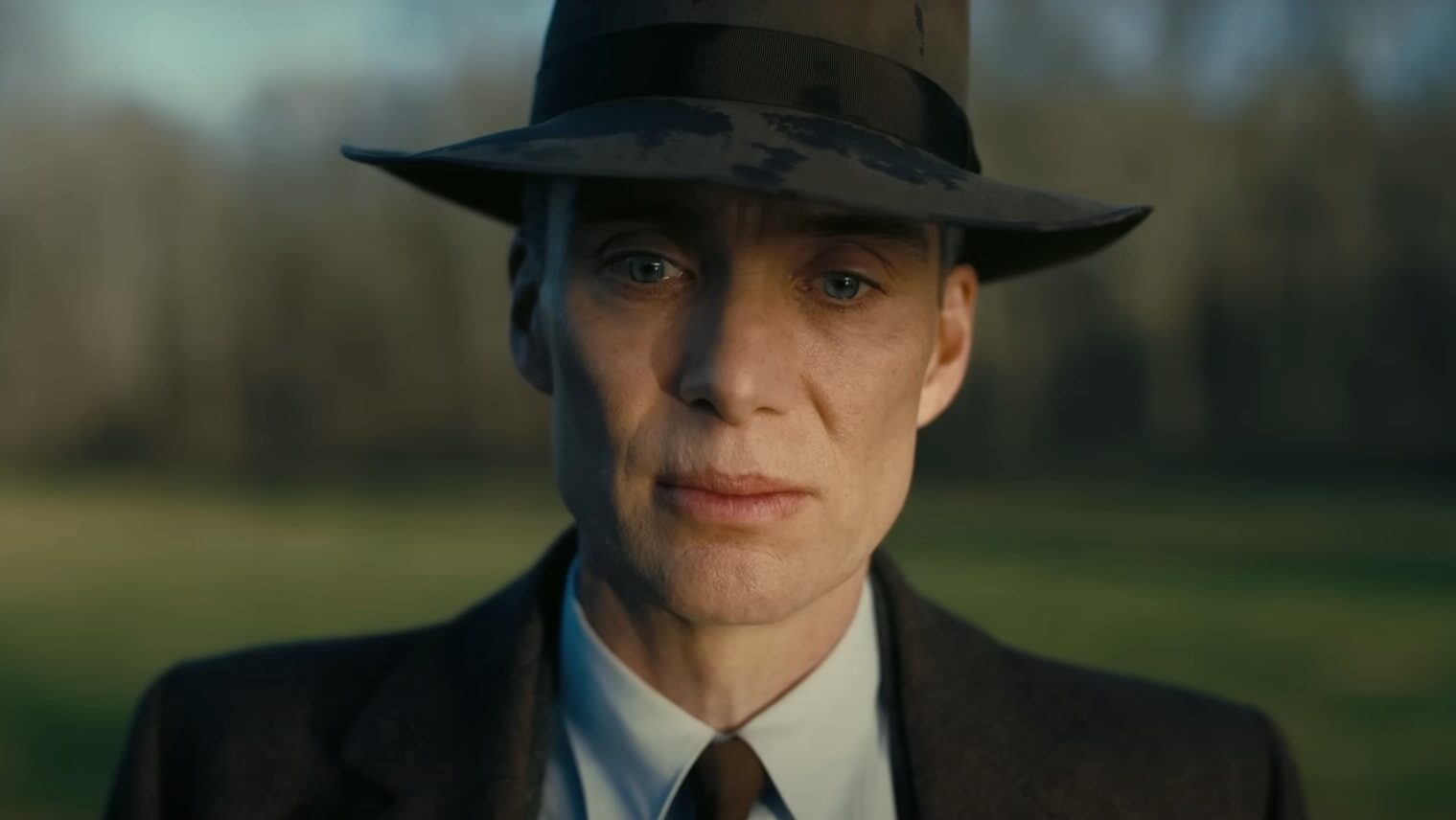
Auteurs are rarely good editors. Left to their own devices, writer-director hyphenates like Christopher Nolan too often overindulge in their subjects, telling too much story and cutting out too little. That’s the biggest problem with Nolan’s latest opus, “Oppenheimer,” which runs three hours.
Let me start with the movie’s good points. It is a feast of stunning visuals, with sound to match. Most filmmakers who work in the Imax format eschew closeups of their actors, but when Nolan zooms in on the face of star Cillian Murphy, it allows the actor to say so much with just an expression — or to show the stoicism of a genius trying to work out a complex scientific solution.
Murphy gives the performance of his career as J. Robert Oppenheimer, who was hired by US Army General Leslie Groves (Matt Damon) to oversee The Manhattan Project, the top-secret effort to create an atomic bomb before the Nazis did during World War II. Oppenheimer was a brilliant quantum physicist who brought in other top minds like Edward Teller (Benny Safdie) and Enrico Fermi (Danny Deferrari) to work on the challenge at Los Alamos, New Mexico.
It’s hard to make scientific discussions entertaining. Other than movies about space travel or aliens (e.g. “The Martian,” “Contact,” “Hidden Figures”), the only good example I can cite is “The Imitation Game,” about Alan Turing and his team breaking the Nazis’ enigma code. Yet none of those involve physicists, who tend to speak at an intellectual level far about the rest of us — except when they try to explain the Big Bang Theory to Penny, the blonde waitress across the hall, of course.
But you don’t need a doctorate or two in advanced science to follow what Oppenheimer and his colleagues were talking about as long as they did, so Nolan wisely doesn’t harp on it. All you have to know is that they were trying to devise the most potent weapon in history, a bomb capable of incinerating a city in an instant.
The event they were all working towards was the Trinity Test, when their theories would for the first time be turned into reality. In “Oppenheimer,” that history-changing moment (which took place 78 years ago this week) is portrayed with remarkable visuals generated by effects supervisor Scott Fisher and his team, who reportedly incorporated a minimum of CGI. Instead, they used real explosives and fuel to produce a mushroom cloud, then slowed the footage down to make it all seem bigger. The result is the movie’s “WOW!” sequence.
Unfortunately, Nolan takes a long time to get there. The movie is front-loaded with too many scenes from Oppenheimer’s academic career, including a meeting with Albert Einstein (Tom Conti) and stops at several institutions of higher learning. The pace is also dragged down by details of Oppenheimer’s relationship with Jean Tatlock, played by Florence Pugh, who isn’t given much to do except lie around in the nude. The only other prominent female role is Oppenheimer’s wife, Kitty (Emily Blunt), who is similarly underwritten except for a single supportive speech towards the end of the movie.
That comes during a 1954 security-clearance hearing in which it’s clear that her husband, hailed as an American hero nine years earlier, was being railroaded out of public service. Nolan also elevates Atomic Energy Commission director Lewis Strauss to a major role, and much of the story is intercut with scenes of his 1959 Senate confirmation hearing to become Eisenhower’s secretary of Commerce. Robert Downey Jr. is terrific as Strauss, playing him with a quiet intensity and fragile ego, but his story adds to the movie’s bloat. As Nolan switches from one timeline to another, it is sometimes difficult to know where we are.
Between seeing “Oppenheimer” and writing this review, I rewatched the 1989 movie, “Fat Man and Little Boy,” which covers much of the same ground. It starred Paul Newman as General Groves and Dwight Schultz (from “The A-Team”) as Oppenheimer, as well as Bonnie Bedelia, John Cusack, Laura Dern, and John C. McGinley. It told the story much more efficiently, albeit without all of the fancy cinematic frills Nolan used. Sadly, despite a very good performance by Newman, “Fat Man and Little Boy” was a box office bomb. Not as big as the one at Los Alamos, but far from a hit. While screen legend Newman had plenty of starring roles afterwards, Schultz never got another opportunity as a leading man.
“Oppenheimer” is likely to do better, but I have no idea who the target audience is supposed to be. And I don’t buy into the social media hype that there’s a large number of people who plan to see both Nolan’s movie and Greta Gerwig’s “Barbie,” which both open tomorrow. They’re calling it a “Barbenheimer” double feature, but I can’t think of two films that have less in common. It would be like going to see “Cocaine Bear” and “The Banshees Of Inisherin” back to back.
I had high hopes for “Oppenheimer,” but can only give it a 6.5 out of 10. Opens tomorrow in theaters.
